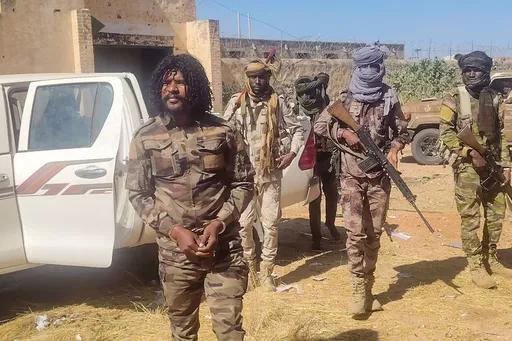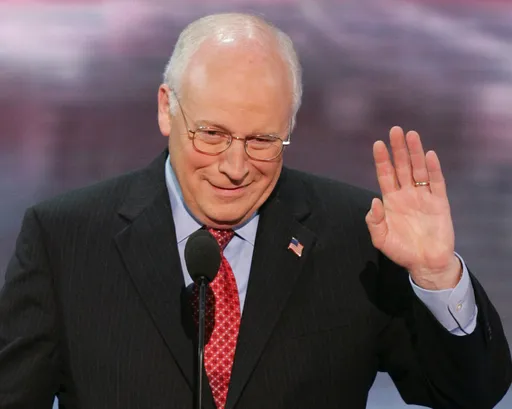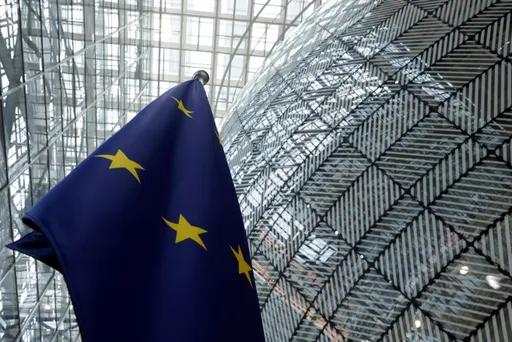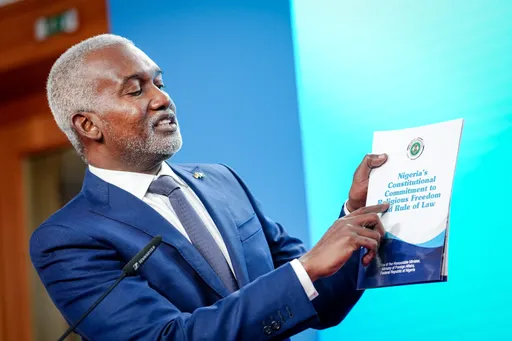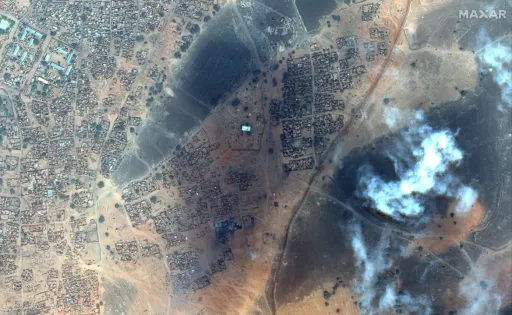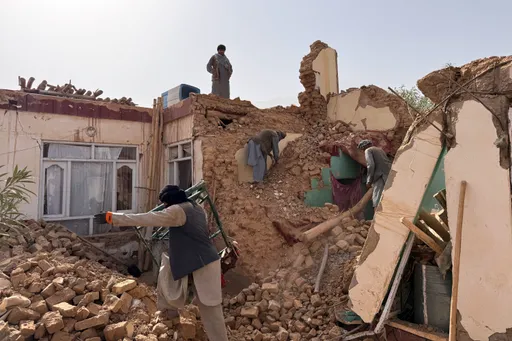Since 2016, Mohammad el-Halabi, a Palestinian from Gaza, has languished in an Israeli prison for a crime he did not commit. He was convicted by an Israel court in June 2022, on false charges of terrorism.
In the absence of any substantive evidence El-Halabi, an operations manager at the Christian relief NGO, World Vision International, was accused by Israel of supporting Hamas, which controls the besieged Palestinian territory.
I have been a lawyer in Israel for almost 25 years, representing many defendants, Israelis and Arabs alike, in Israel’s court system. I have seen firsthand how, for Palestinians, a fair trial is at best a highly remote or distant possibility. As Halabi’s defence attorney, I also saw how such a fair trial for Palestinians is flat-out impossible.
El-Halabi’s trial is a microcosm of the impossible task Palestinians face in proving their innocence. El-Halabi was sentenced to 12 years in prison last year.
As his trial has progressed, I have come to realise that he has been convicted on false statements and so-called “evidence”.
For example, the Israeli prosecutors routinely hid information, that they were using to frame el-Halabi. In a fair trial, I’d be able to see all evidence without any complications, in line with the right of the defence to review what the prosecution submits in a court against the accused.
At the beginning of his arrest, Israel had even denied el-Halabi legal representation and he was not allowed to see any lawyer for two months.
When my team and I began probing the prosecution for evidence against my client, the court twisted rules to make sure that actual evidence against el-Halabi - that might have exonerated him - was not admitted for trial.
If this isn’t enough, take a look at how the trial (read: mistrial) has proceeded so far.
Where’s the evidence?
The prosecution did not offer a single piece of objective evidence to support or substantiate the claims against el-Halabi throughout the trial.
He was charged with diverting funds to Hamas while working with World Vision. Israeli investigators confiscated all the records and documents related to various projects of the organisation. They also took custody of the NGO’s bank accounts and related records concerning its general and specific activity in Gaza.
During his testimony, the lead investigator admitted that they didn’t examine or vet any of the documents they confiscated, claiming that there were too many documents to go over!

Mohammad El Halabi was seen before a hearing at the Beersheba district court in southern Israel in 2016 (Reuters Archive)
He also admitted knowing nothing about how exactly the organisation’s funds were diverted.
The evidence that we, the defence team, meticulously collected, was not entertained by Natan Zlochower, the lead judge in the case (out of a panel consisting of 3 judges), who time and again said it must be “untrue” since it contradicts charges against el-Halabi.
Can’t copy the documents
At the start of the trial, the prosecution separated the evidence into three sections: one visible part, which included nothing against el-Halabi, and two hidden parts.
The second part is so secret that neither the defence nor the court can see or know what it contains.
Moreover, the defence was also denied a copy of the third part. I was only allowed to examine a copy (not original) of this evidence in the presence of two investigators, preventing me from copying anything for the record.
The prosecution even refused to let defence specialists review the documents, even after a preliminary assessment revealed that the supposed evidence was a forgery.
Even when I was allowed to take notes on the evidence, I was asked to write it down on the prosecutor’s laptop. Even my arguments to the court had to be typed on that laptop, in front of state investigators. And the laptop was brought in only at times that were convenient for the investigators!
The court even came up with a new “rule” that barred me from taking notes and questioning the validity of confidential evidence.
Where are the witnesses?
The prosecution failed to bring any witness who can testify against el-Halabi.
At one point during the trial, the prosecution claimed it was convinced that el-Halabi would prevent witnesses, workers and contractors in Gaza from testifying before the court.
Knowing he was innocent, el-Halabi himself tried to call the witnesses. But then the prosecution suddenly objected to his doing that. It succeeded in blocking the witnesses from ever coming before the judge in part because they were not given permits to cross the border into Israel and were threatened with arrests.
The main witness, who was threatened with arrest but showed up nevertheless, testified in court and completely refuted all the claims of the prosecution.
Hindrance in collection of evidence
As a defence attorney, I requested permission to enter Gaza in order to interview the witnesses and go over World Vision’s documents.
Israeli authorities didn’t let me, saying interviews of potential witnesses for the purpose of preparation for the court hearings will only be allowed in a room provided by Israel at the border crossing.
The witnesses must also be photographed and recorded on video and audio by Israeli authorities as a condition for my meeting with them.
Falling back on criminals
Of all the difficulties and peculiarities in the case, the most jarring was the court's choice to rely completely, without any investigation, on the testimony of a convicted criminal.
This still applied when the prosecution’s own evidence completely contradicted his testimony.
For example, el-Halabi was convicted in 2010 of recording GPS coordinates at the Erez crossing point between Gaza and Israel, despite the fact that Israel’s official entrance and departure report shows that he did not travel through the border between 2005 and 2012.
Similarly, el-Halabi has been accused of shipping hundreds of tons of iron through trucks via the Kerem Shalom border, despite the fact that World Vision never imported iron into Gaza and never moved anything on trucks through the Kerem Shalom crossing. This was verified by Israel’s own records.
El-Halabi was convicted of transferring tens of millions of US dollars to Hamas, an amount that exceeded World Vision’s entire budget in Gaza.
The court concluded that the hearsay testimony of a convicted criminal superseded any proven facts. It did so being fully aware that el-Halabi is not guilty of any crime and that the charges levelled against him are completely baseless.
The entire goal of el-Halabi's prosecution was to put pressure on foreign organisations in Gaza to cease their activities thereby claiming that their humanitarian aid was being diverted to fund militancy. In that, Israel has succeeded. World Vision suspended its operations in Gaza in response to el-Halabi’s detention.
Throughout his trial, the prosecution put pressure on el-Halabi to cooperate, ultimately making it easier for Israel to outlaw humanitarian help to poor Palestinians. In return, Israel promised el-Halabi he would be released from prison and be reunited with his family.
Heroically, el-Halabi refused. He opposed any cut to the desperately needed humanitarian help and instead sacrificed himself and has been enduring separation from his family.
The judges who presided over his detention and the attempts for mediation told him he had little hope of defeating the system and would be convicted, in any trial that took place in Israel’s judicial system. It didn’t matter that he was innocent. Still, he maintained before those judges that the truth is important. And that his humanitarian work in Gaza was a lifeline for Palestinians, from which he’d never waver.
Today el-Halabi or simply “Mohammad”, as I call him, remains in prison for this reason. The United Nations has acknowledged him as a humanitarian hero.
There was a chance for Israel to demonstrate that there is a proper legal system within the state, during el-Halabi's trial. That never happened.
I hope the appeal of the trial verdict will yield a just outcome – something that Israel has denied to my client so far.









